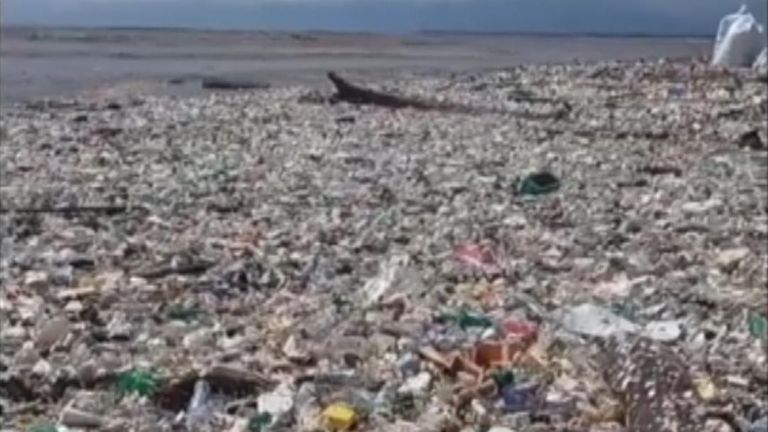Worms may be the answer to the question of how to deal with one of the most common forms of plastic pollution.
Spanish researchers have found that chemicals in waxworm saliva can break down polyethylene, a particularly wear-resistant material.
Their study found that exposure plastic The creature’s saliva degrades in one hour to the same extent as years of normal exposure to these elements.
Wax worms are the larvae of wax moths that typically feed on tough wax bees to make honeycombs and are actually considered pests by beekeepers.
The study, published in the journal Nature Communications, found that two enzymes in the worm’s saliva — which are used to break down wax — also break down plastic.
In order for plastic to degrade, oxygen needs to penetrate the plastic’s molecules, the polymer, in a process called oxidation.
The study found that enzymes in saliva allow this process to happen within hours without pre-treating the plastic by exposing it to heat or radiation.
Polyethylene is the most widely used plastic in the world and causes a large amount of Pollution.
Originally created in 1933, it is widely used because it is inexpensive, durable and does not interact with food.
Designed to be hard to break down, it can stay the same for decades.
Enzymes are artificially synthesized
However, the breakthrough could change that, says molecular biologist Federica Bertocchini of the Spanish National Research Council (CSIC) who led the study, saying it is “changing the paradigm of plastic biodegradation”.
She went on to explain that not only did they discover which enzymes break down plastic, but they also managed to produce them synthetically, avoiding the need for billions of wax worms to do the job.
read more:
‘Stunning’ amount of plastic thrown away by UK households each year
Microplastics found in human blood for the first time after scientists make ‘worrying discovery’
There are several practical drawbacks to doing this, as well as the production of large amounts of carbon dioxide when the worms metabolize polyethylene.
Over the past 30 years, the use of plastic has skyrocketed, with hundreds of millions of tons becoming waste every year, of which less than 10% is recycled.
In March, the United Nations approved a landmark agreement after talks in Nairobi to create the world’s first global plastic pollution treaty, with the goal of finalizing a legally binding agreement by 2024.
Subscribe to ClimateCast on Spotify, Apple Podcasts, or speakers.
